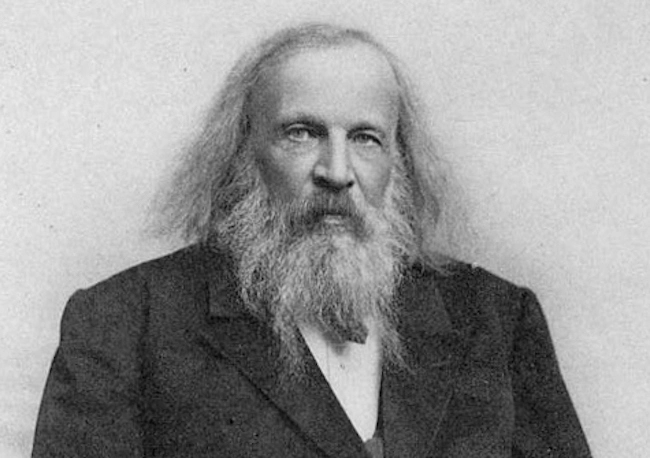Dmitri Mendeleev was a Russian chemist who is credited for creating the periodic table of elements as we know it today.
Early life
Dmitri Ivanovich Mendeleev was born on 8 February 1834 in the village of Verkhnie Aremzyani in Siberia. He was the son of Ivan Pavlovich Mendeleev and Maria Dmitrievna Mendeleev. The number of Dmitri’s siblings is yet not known, there are sources that indicate numbers that range from 11 to 17. Mendeleev family was poor, especially after Dmitri’s father Ivan became blind. Soon afterwards he died leaving his wife to take care of the children.
Education
After moving to St. Petersburg, Dmitri managed to get in Pedagogical Institute in 1850. Following his graduation, he was affected by tuberculosis which made move to Crimean Peninsula on the coast of Black sea. There he earned his science master degree, and after fully healing, he moved back to St. Petersburg.
Achievements
Dmitri Mendeleev is best known for his periodic table of elements. Many other scientists suggested that elements should be periodically displayed, but it was their rather rigid design that caused the scientific community to disregard their work. Mendeleev’s own periodic table of elements presented in his “Principles of Chemistry” was a pure success. Mendeleev found out that certain patterns emerged while he was classifying the chemical elements according to their chemical properties.
These patterns led him to postulate his periodic table the way we know it today. Scientific community praised the way Mendeleev classified elements, and his work was soon adopted as a standard periodic table of elements.
Later life
Dmitri Mendeleev continued to conduct his research in the field of chemistry. Mendeleev helped the founding of the first oil refinery in Russia, he also recognized the importance of petroleum in petrochemicals. Dmitri Mendeleev died in 1907 at the age of 72 from influenza virus.
Dmitri Mendeleev quotes
“If all the elements are arranged in the order of their atomic weights, a periodic repetition of properties is obtained. This is expressed by the law of periodicity.”
“The edifice of science not only requires material, but also a plan. Without the material, the plan alone is but a castle in the air—a mere possibility; whilst the material without a plan is but useless matter.”
“I have achieved an inner freedom.”

